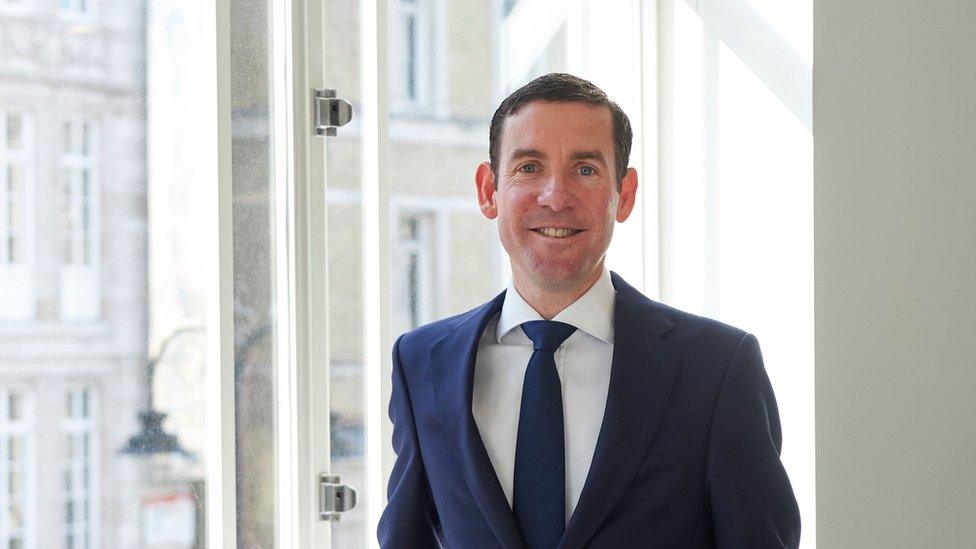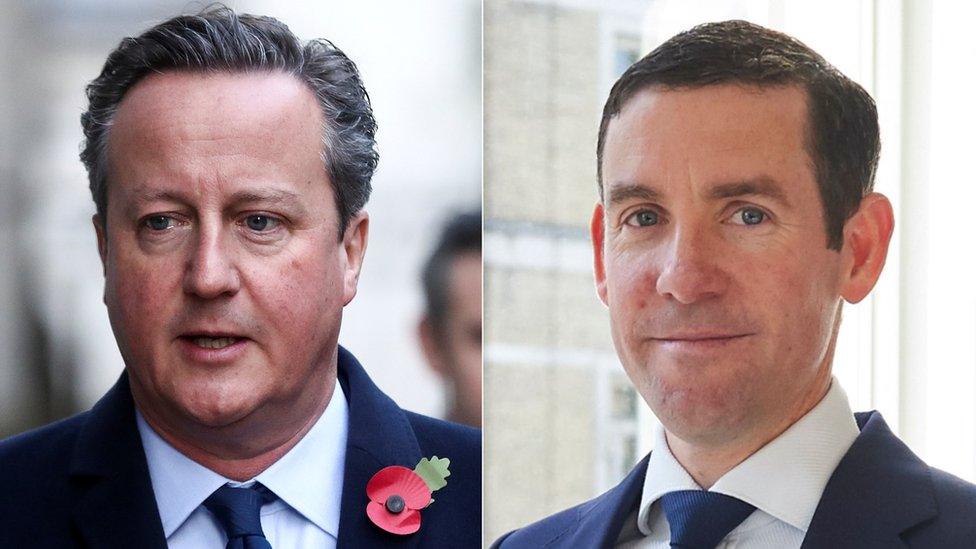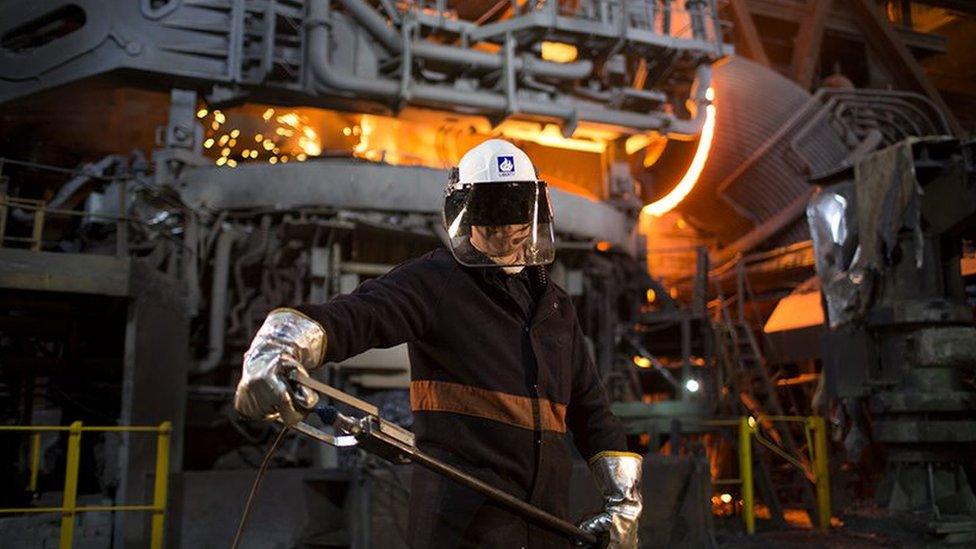Greensill: Watchdog to probe 'potentially criminal' collapse of firm
- Published
Lex Greensill appears before Treasury Select Committee
The UK's financial watchdog has opened an investigation into the collapse of Liberty Steel backer Greensill Capital.
The Financial Conduct Authority (FCA) said "potentially criminal" allegations had been made about the circumstances of the financial firm's failure.
Liberty Steel owner GFG has been scrambling to raise funds since Greensill failed in March, leaving 3,000 jobs at risk.
It comes as David Cameron faces questions over lobbying for Greensill.
The former prime minister has said he regrets texting ministers, including Chancellor Rishi Sunak, but maintains that he did not break government rules on lobbying.
'Number of allegations'
In a letter to Mel Stride, the chair of the Treasury Committee in the House of Commons, FCA chief executive Nikhil Rathi said the investigation was looking into Greensill Capital, its subsidiary Greensill Capital Securities and the oversight of the latter by its principal, Mirabella Advisers.
"A number of allegations have been made in the press regarding the circumstances of Greensill's failure, some of which are potentially criminal in nature," Mr Rathi said.
"There are, therefore, some aspects of the FCA's interactions with Greensill entities that I am not able to disclose, so as not to prejudice these ongoing investigations."
He added: "We are also co-operating with counterparts in other UK enforcement and regulatory agencies, as well as authorities in a number of overseas jurisdictions."
Greensill was the main financial backer of Liberty Steel, which employs 3,000 people in England, Scotland and Wales.
However, it collapsed after its insurer refused to renew cover for the loans Greensill was making.

Lex Greensill was an unpaid adviser to then Prime Minister David Cameron
Investors caught in the fallout included Swiss banking giant Credit Suisse and about 26 German towns.
German regulators are investigating Greensill Capital subsidiary Greensill Bank, external over balance sheet irregularities.
In the UK, MPs have opened an inquiry into Greensill's collapse and heard evidence from the firm's founder, Lex Greensill, on Tuesday.
Mr Greensill, who in the early 2010s worked as an unpaid adviser to Mr Cameron in Downing Street, told the Treasury Committee he bore "full responsibility" for the collapse of the company.
He said he was "desperately saddened that more than a thousand hard-working people had lost their jobs" and added that he took "full responsibility" for the hardship being felt by the company's clients and their suppliers.
"It's deeply regrettable that we were let down by our leading insurer, whose actions assured Greensill's collapse," Mr Greensill said.
He said that before Greensill failed, it had provided businesses in more than 150 countries with finance.
"Those people did not do business with me because of our brand," he said. "They did business with us for one reason, and one reason only, and that is, they got a better deal with us than they could get from their banks."
He added that Greensill failed, "so there clearly was a flaw in our business", but taking real-time information out of corporate accounting systems and using that information to make credit decisions "absolutely is the future".
Cameron faces criticism
Mr Cameron, who took a role at Greensill Capital in 2018, two years after leaving office, has faced criticism for using private contacts with ministers and government officials to try to win business for Greensill Capital.
In 2020, he lobbied ministers unsuccessfully to allow Greensill to issue government-backed loans as part of the Corporate Covid Financing Facility (CCFF) - a scheme to help big firms through the pandemic.
Newly released documents show that he and his staff sent ministers and officials 45 emails, texts and WhatsApp messages concerning Greensill in between 5 March and 26 June 2020.
Mr Cameron denies breaking any codes of conduct or government rules on lobbying.
Mr Rathi will appear before the committee on Wednesday, followed by Mr Cameron on Thursday.
- Published11 May 2021

- Published6 May 2021
